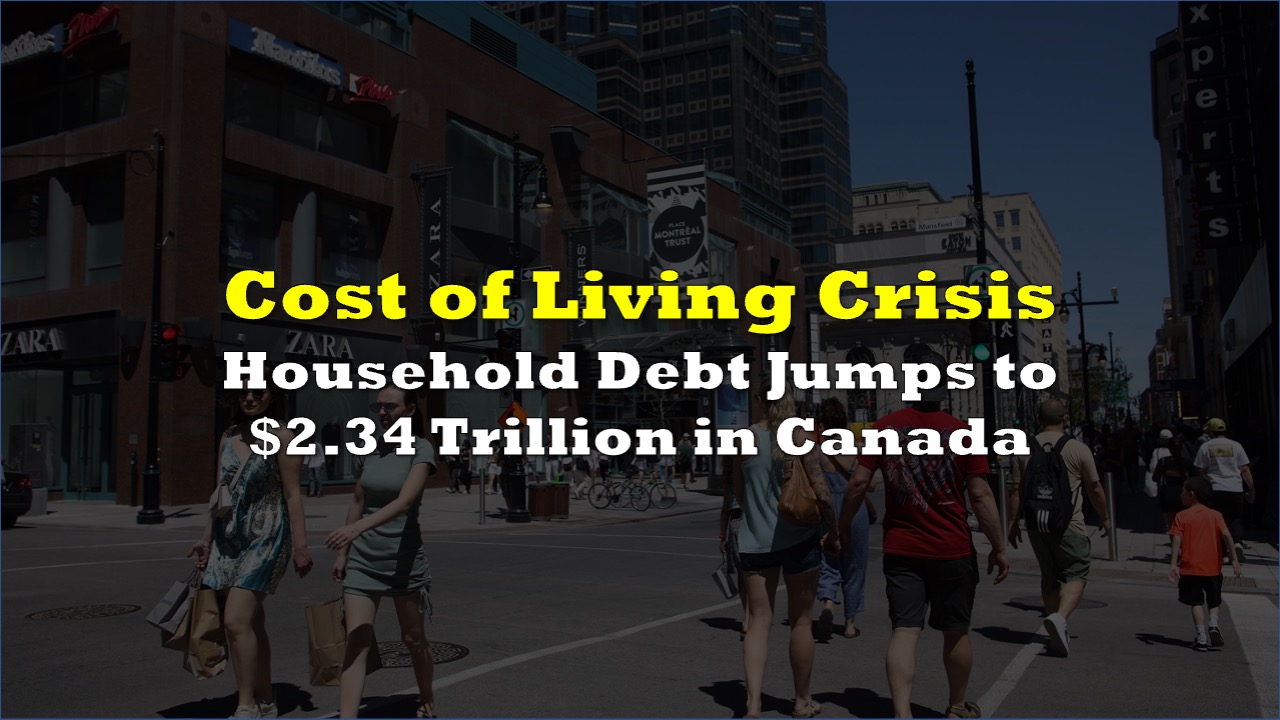According to TransUnion’s Q2 2023 Credit Industry Insights Report, the average credit card balance now stands at $4,000, reflecting a 4.2% increase in Canadian household debt compared to the previous year, totaling an astounding $2.34 trillion for Canadians.
Not quite surprisingly, the main driver of this debt surge has been mortgage loan debt, which has maintained a consistent pace of growth for five consecutive quarters, with a 9% year-over-year increase, as existing home sales rebounded.
TransUnion assessed Canadians’ financial management and debt handling through its Credit Industry Indicator metric. In the second quarter of 2023, Canada scored 106 on this metric, marking a 1.6-point increase compared to the same period in 2022. However, this level is on par with pre-pandemic levels, with the slight year-over-year increase attributed to heightened credit demand.
The report also points out that increased debt levels and rising interest rates have led to higher minimum payments, adding to the financial stress faced by many consumers. While Canadian credit consumers have traditionally displayed resilience, there are now signs of strain, particularly among early-career Gen Z individuals in this higher interest rate environment.
RELATED: Interest Rate Aftermath: Canada’s Economy Unexpectedly Contracts in Second Quarter
Matthew Fabian, Director of Financial Services Research and Consulting at TransUnion in Canada, remarked, “Canadians, like the economy, remain persistently resilient,” but acknowledged the challenges posed by the high cost of living and elevated interest rates.
Canadians are increasingly turning to credit for liquidity. The report shows that the number of Canadians with credit card debt increased by 3.3% in the first quarter of 2023, with even riskier subprime consumers experiencing an 8.9% year-over-year rise in their debt levels.
One significant contributor to the rising debt is increased spending habits, with the average consumer spending $2,100 on their credit cards in Q2 2023, a 1.5% increase from the previous year. Even consumers with lower credit scores have increased their spending to $1,300, up by 4% year-over-year. However, as spending rose, the amount paid toward card balances each month decreased by 2.8% year-over-year.
Demand for new credit cards continued to rise, with a 17% increase in the second quarter of 2023 compared to the previous year. Lenders responded with a 12% year-over-year growth in origination volumes, indicating an increased risk appetite among lenders.
Fabian noted that this increase in minimum payments has put stress on household finances, forcing consumers to make tough choices about allocating discretionary income and which bills or debt to prioritize.
Information for this story was found via TransUnion, and the sources and companies mentioned. The author has no securities or affiliations related to the organizations discussed. Not a recommendation to buy or sell. Always do additional research and consult a professional before purchasing a security. The author holds no licenses.









